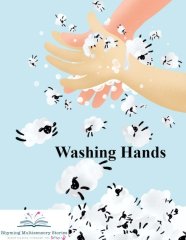Dear Santa - A Christmas Adventure
Join Johnny as he writes his letter to Santa with this magical multisensory Christmas story
Table of Contents
Dear Santa - A Fully Resourced Multisensory Story
How to Tell a Multisensory Story Guide
Skills Promoted During the Sensory Exploration
Adapting the poem into a play
Toy Store Role Play
Christmas Listening Game
Christmas Sensory Bag
40 Festive Activity Ideas
The Sleigh Ride - A Guided Relaxation
A multisensory story is told using sensory stimuli (props).
The story props are low budget, everyday items found around the home, garden, outdoor areas and in the classroom.
-
Payment methods
-
Return Policy
We accept returns
Join Johnny as he writes his letter to Santa with this magical Christmas story
Table of Contents
Dear Santa - A Fully Resourced Multisensory Story
How to Tell a Multisensory Story Guide
Skills Promoted During the Sensory Exploration
Adapting the poem into a play
Toy Store Role Play
Christmas Listening Game
Christmas Sensory Bag
40 Festive Activity Ideas
The Sleigh Ride - A Guided Relaxation
A multisensory story is told using sensory stimuli (props).
The story props are low budget, everyday items found around the home, garden, outdoor areas and in the classroom.
This story includes themed, sensory extension activities that link to the EYFS Framework and areas of the KS1 National Curriculum making them the perfect resource for Special Education (aged 3-19) EYFS, Mainstream Primary, Speech & Language and EAL students.
What are the Benefits of Multisensory Storytelling?
1. Storytelling creates a bond between the storyteller and the story explorer enhancing and enriching experiences.
2. Rhyming Multisensory Stories connect the individual to literature, culture and topic in a fun and engaging way.
3. The stories form a base on which to scaffold learning enabling the student to work on personal goals and individual targets.
4. The activities in the stories are designed to promote communication skills: (eye contact, listening, shared attention & language development), self-confidence & well-being (trying out new ideas & skills, practicing self-care & independence and enjoying achievement), self-awareness: (asking for 'help', 'again' and 'more'), present opportunities to explore cause & effect and build anticipation skills, promote physical development: (fine & gross motor skills), build knowledge about the environment & the world around us, to engage in scientific experimentation and mathematical concepts and to develop social & emotional skills: (turn-taking & sharing and teamwork).
5. The sensory stimuli (story props) are a tool for the story explorer to explore and express their likes, dislikes and sensory preferences and to have the opportunity to make choices.
This information can be used to identify motivators or items to calm and individual when anxious, tired or stressed, identify triggers, (some you may wish to avoid, others to work on building tolerance through desensitisation in a safe and therapeutic environment) and used in the writing of care plans to enhance areas daily life.
Your questions, queries, comments and feedback are always welcome!
We accept the following payment methods:
To replace this text with your store's actual info on payment methods, go to "Catalog -> Product tabs" and edit the Payment methods page.
Here you can provide information as to what products can be returned, how many days your customers have to return their purchase, whether they will receive a refund in the original form of payment, a replacement or a store credit, who pays for the shipping of the previously purchased products to the store, and so on.
To replace this text with your store's actual return policy, go to "Catalog -> Product tabs" and edit the Return Policy page.












